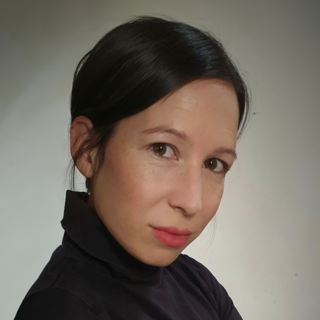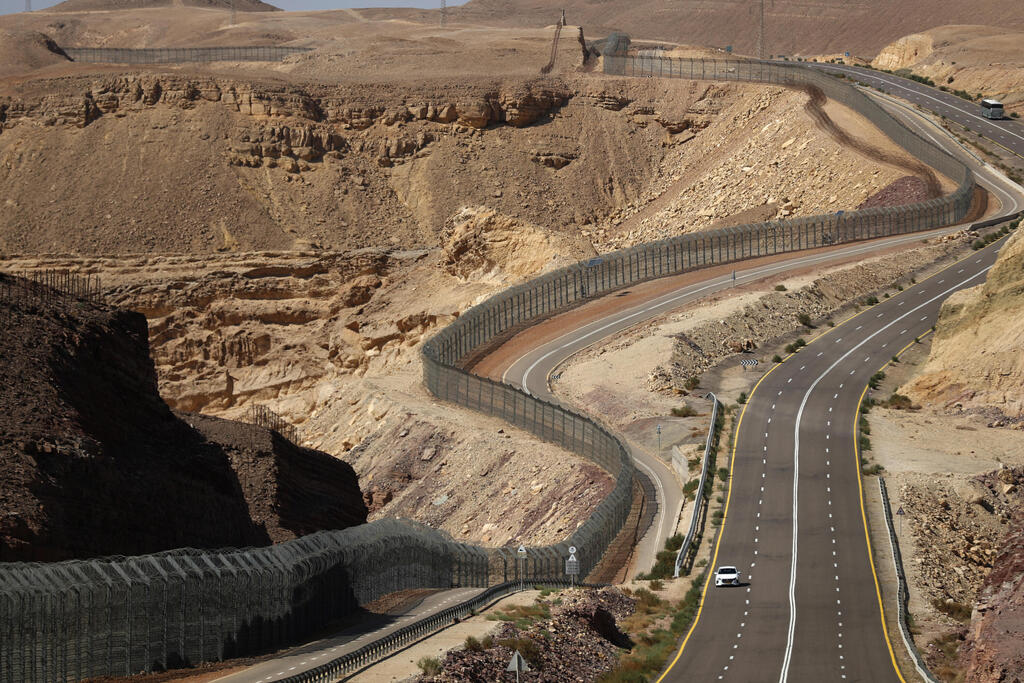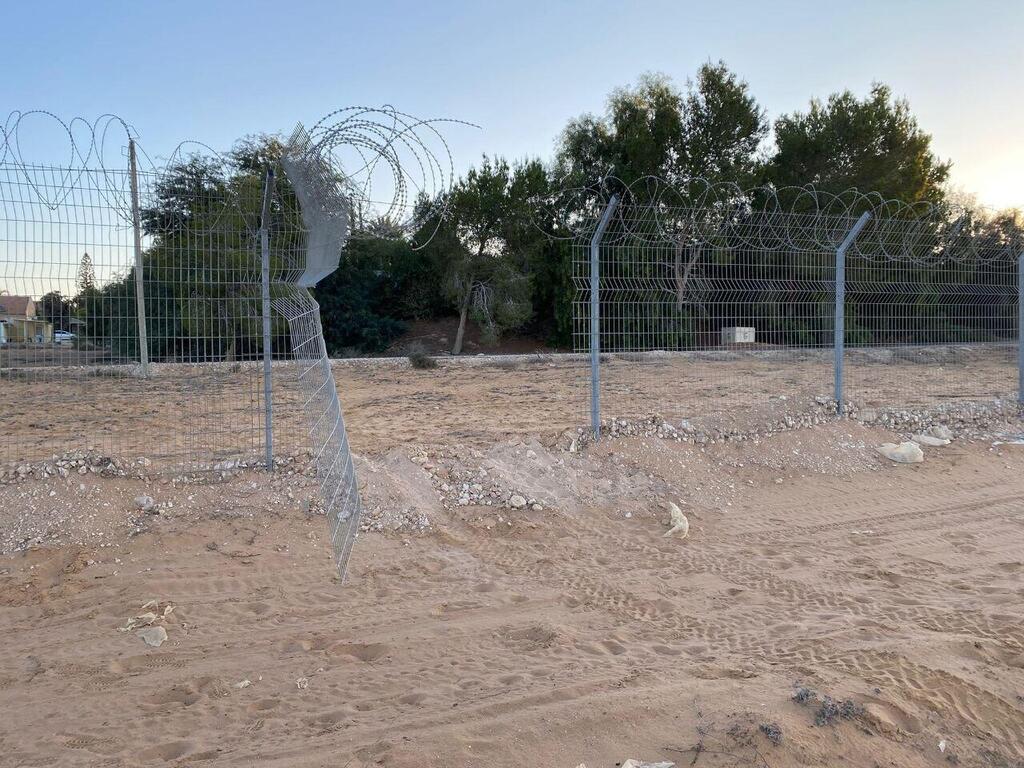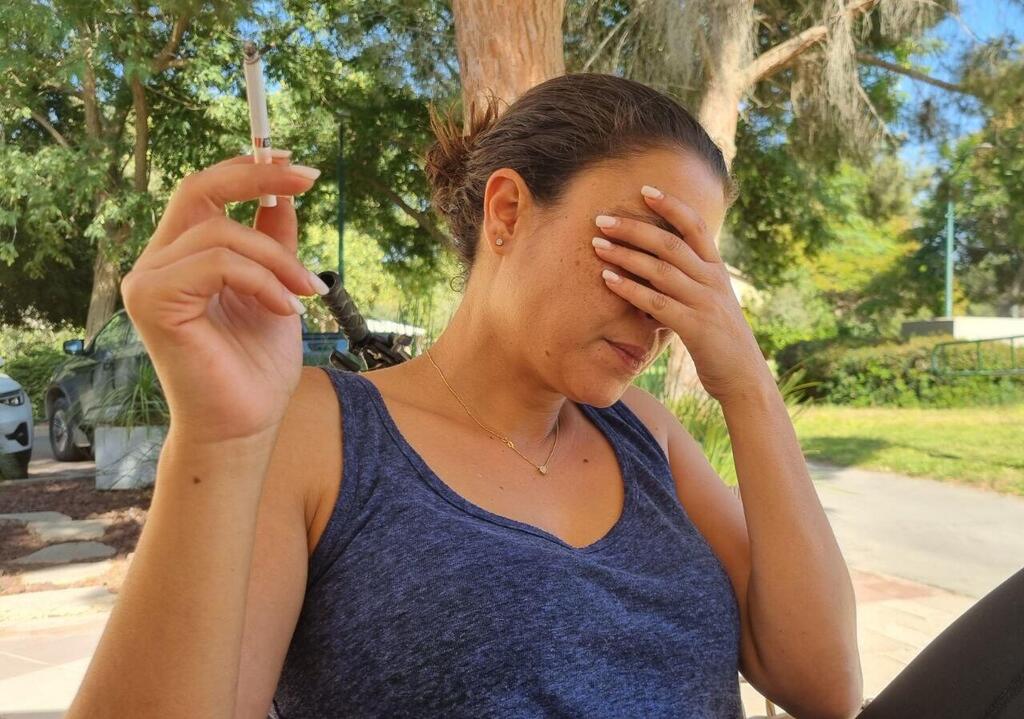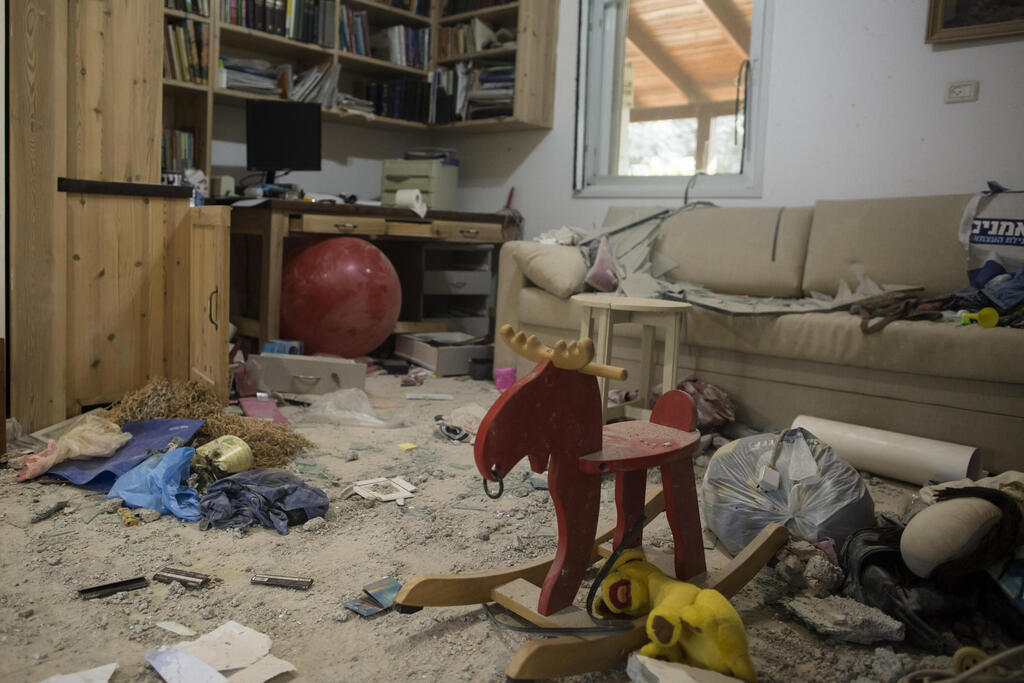Getting your Trinity Audio player ready...
The local authorities neighboring the Gaza border are taking in evacuees from the October 7 massacre, burying their fallen soldiers and arming alert squads.
More stories:
The Ramat Hanegev Regional Council borders Egypt and is adjacent to the Eshkol Regional Council. It lost hundreds of residents - murdered and abducted to Gaza. The regional council has already purchased half a million shekel worth of weapons. Some of the Pitchat Nitzana communities within the regional council don't even have fences. They’re prepared for terrorists spilling out of Gaza but are not ruling out the possibility of terrorists also coming from Egypt.
5 View gallery
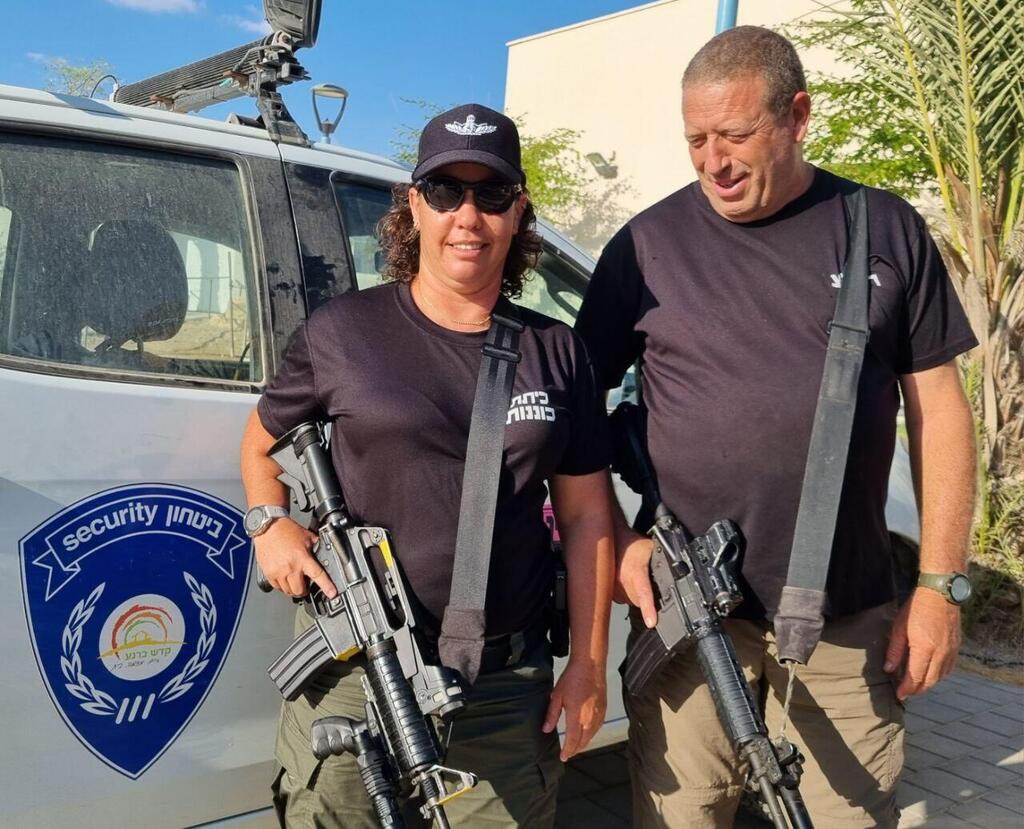

Yahli Levi and Kadesh Barnea Military Security Coordinator Annan Sion
(Photo: Ilana Curiel)
"Arm the alert squads and let us defend ourselves with all our force. The rationale is clear: We’ve seen that armed-and-ready alert squads saved entire communities in the Gaza border," says Ramat Hanegev Mayor Eran Doron.
"In Ramat Negev, we have about 15 communities, some adjacent to the fence, which are facing solid threats and warnings. I can't wait around for the police and the army. They’re now busy with further incidents. I want to ensure that the alert squads in our communities can repel threats and dangers within our territory. We cannot be abandoned to our fate.”
In Kadesh Barnea, Military Security Coordinator Annan Sion set up an improvised war room to obtain weapons, radios and ceramic vests. “We’re trying to upgrade and fill our inventory gaps. Things like water for the moshav, gasoline and more equipment. We’re going into emergency mode and waiting to see where it’s going. As for possible scenarios: We’ve seen what’s happened and we’re trying to respond to every possible outrageous scenario," he says.
During our conversation, he’s also talking to a military source, warning, “If I can’t go to a shooting range, we’re going to the greenhouses to practice. If you hear shooting from there, it’s us.” Sion’s wife spent the night at a friend’s house. “Lone farms are in trouble too. They only have a couple of people there. We have 80 families in our community. They have the same problem.”
Yahli Levi, 41, a farmer and single mother to five children in Kadesh Barnea, is a member of the community’s alert squad. “The Peled Team in Pitchat Nitzana lost two members. My brother’s on the team with them,” she tells us.
Two LOTAR (counter-terrorism special forces [sayeret] unit) fighters from Nitzana (Peled Team), Yiftach Groni from Be’er Milka and Liran Almosnino from Kmehin, were killed on the first day of the fighting on their way to defend Kibbutz Holit.
“We had a few extremely hard days, but our alert team functions and we have a lot of ammunition here. There’s an atmosphere of war, but also of life. In between, we drop in at the farm. We’re busy around the clock guarding and securing the moshav. Events have put us into a very heightened state of alert.”
Levi adds, “What we saw on the Gaza border are scenarios that we’d been training for in the alert squads, but no one imagined that level of force and brutality.” Kadesh Barnea is situated 1600 feet from the Egyptian border. Mortars, the Islamic State and terrorists trickling in from Gaza are the main threats. “We have children on the moshav. We’ve trained for ISIS terrorists showing up in vans.”
Ramat Hanegev Regional Council head Eran Doron describes how the local alert squads are struggling. "Over the past decade, the number of weapons has decreased. The army’s simply taking them when they feel like it. Our military security coordinator in Petah Nitzana has fought tooth and nail to keep our weapons - and some residents have managed to keep hold of them, but we’re still short of equipment," he says.
"You can forget about ceramic vests or night vision devices. We rely on the fact that we live here and know every streetlight and vehicle outside the moshav. We can recognize smugglers – and there are smugglers coming across the border all the time. We can identify routine fire from Egypt. We have personal weapons, but you can't win a war with pistols. At the end of the day, it’s down to the political echelon. We have to beg for our children's lives and livelihoods because we’re farmers. We are the border’s human shield. We’re the first line of defense."
Doron explains, “We’ve put together a guard system – a bit from the Border Police, the police force, regulars, reservists and lots of residents. But it’s cobbled together from what we had. It’s not organized. Units come and go. When you see Kibbutz Be’eri erased, you can’t take chances. You can’t be too careful. You never know who to rely on and who’ll come to your rescue. They rely on us.”
'The community has collapsed'
Almost all the residents of Ramat Hanegev have taken in evacuees. Kibbutz Mash’abei Sadeh have taken in 240, mainly from Ohad, but also from Be’eri, Pri Gan and other communities. “The number of evacuees changes from one moment to the next,” says Chen Rodman, responsible for their absorption.
Adamit Bachar, 41, mother of three children (14, 9 and 2 1/2 years) from Moshav Ohad, is sitting shiva for her husband's niece, Shir Yaron, who was murdered at Mivtahim Junction, along with three friends while returning from the music festival at Re’im.
"We spent all of Shabbat locked in the safe rooms and then, on Sunday, we evacuated to Sde Boker where we were hosted by a family. We arrived at Mash’abei Sadeh on Monday, along with lots of other people from the moshav. I have no words to describe how kindly we’ve been received. We're together here, so we feel a little safer, trying to take in what’s happened to the community.”
“We wake up every morning and keep getting more and more reports of some friend or another who’s been killed, or the father or uncle of a friend. It’s mainly to do with the children – it’s children who haven’t made contact, parents of children who’ve been killed. It’s all about the children and what they’re going through. We’re adults and we have different coping mechanisms, although everyone’s broken. The community has collapsed. We try to keep the children away from their phone screens and the horrific videos online, but it’s unavoidable as their friends are telling them about what happened to their mothers or fathers. My son’s on tranquilizers. It’s so hard to find out every day that another person is dead. It’s too close. It’s not a story on TV. It’s real life.”
Adamit adds, “I have no problem with the rockets. As far as I’m concerned, they can keep firing at me, but taking away my children? I don’t know if we’ll be able to go back there.” And as if that’s not enough, Moshav Ohad is four and a half miles from the border, so they’re not even getting the pocket money the government has authorized.
Inbal Lasri from Moshav Pri Gan arrived at Mash’abei Sadeh. “We had an infiltration, but Shlomit’s alert squad came and protected us with their lives,” she tells us. “They were killed but saved us. The terrorists got into two houses. Everyone who’s here was saved.”
They’re now in a resort in Ramat Hanegev that seems like some kind of virtual reality. “This is what all the kibbutzim looked like. This is how we lived. This is the closest we have to our home now. Our home is a ruin. It’s the kind of war zone you only see in the movies.”
In addition to evacuees, the regional council has also taken in hundreds of foreign agricultural laborers. “It’s crazy,” says Yankel’e Moskowitz, director of R&D for Ramat Hanegev Regional Council. Around 200 Thai workers were put up at the Desert Ship in Golda Meir Park. “There’s a refugee camp there. Some arrived post-traumatic. Those wanting to carry on working are making it to the center of the country. But people showing up here didn’t. We’re all exhausted. It’s just all so hard.”



